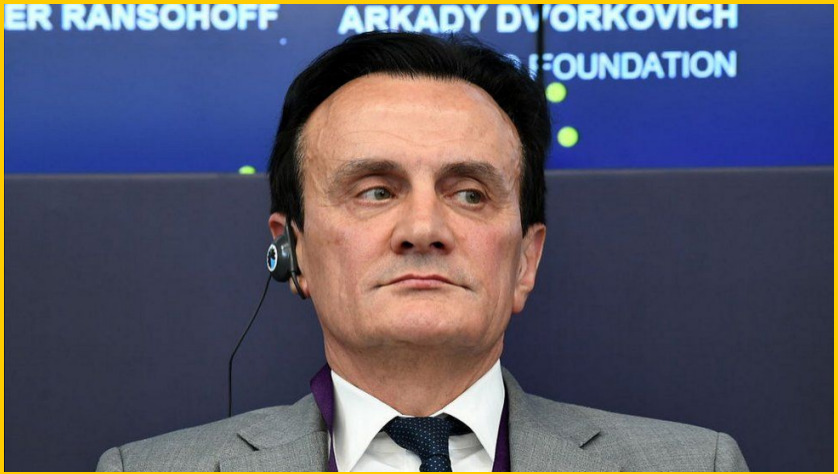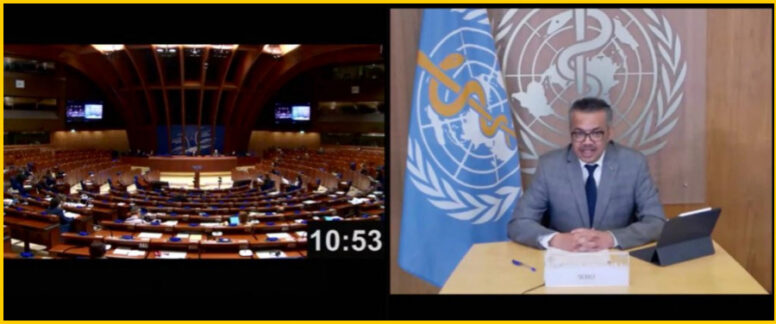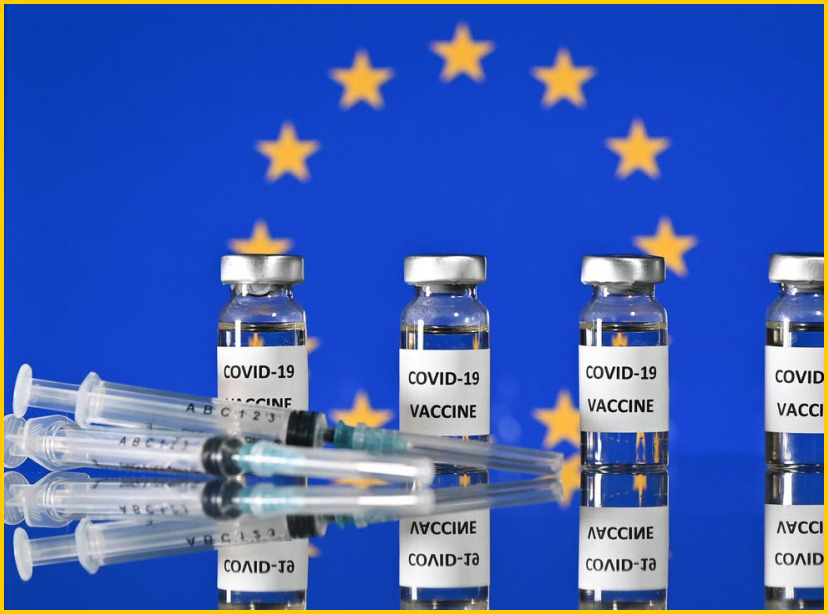January 29th local time, the European Commission officially issued a marketing license for the vaccine produced by Oxford University and AstraZeneca in the United Kingdom, which is also the third coronavirus vaccine approved in the European Union.
AstraZeneca had previously said that it would reduce the supply of vaccines to EU countries in the first quarter of this year.
The vaccine dispute between the EU and AstraZeneca is escalating this week.
The European Union has repeatedly put pressure on AstraZeneca to fulfill its obligations to deliver vaccines on time, and this week the plot is constantly reversed.
On January 29, the European Union not only made public the vaccine pre-sourcing agreement with AstraZeneca, but also urgently adopted the implementation regulations on the transparency and approval mechanism for vaccine exports.
The “vaccine battle” between the two sides can be said to be on the verge of breaking out.
Vaccine supply: unsolved war of words
Now the two sides are different. Despite many crisis talks, they have not found a solution.
The EU has a strong attitude: vaccines, please deliver them on time; this pot, we don’t carry it!
AstraZeneca is also welcome: we try our best to provide vaccines; supply first come, first served.
After a week of fermentation, the vaccine supply reduction storm is also gradually evolving into a “vaccine battle” between Europe and Britain in public opinion on both sides of the English Channel.
January 27, Suboko, the global CEO of AstraZeneca, contributed a “big melon” in an interview with seven newspapers of the European Leading Newspaper Alliance.
The original simple buying and selling relationship was caused by the opposing statements of both sides.
Doubt 1: Are the two parties clear about the delivery? Is the agreement binding?
AstraZeneca: The previously agreed delivery goal only promises to “do your best” and is not subject to the agreement.
It is unrealistic that the EU signed a procurement agreement three months later than the United Kingdom, but required the same delivery pace.
European Commission: The two sides have signed a formal advance procurement agreement.
The EU advance is used to improve the production line capacity. AstraZeneca must deliver on time and in quantity.
Focus: The European Commission has made public the content of the agreement, and AstraZeneca has not made any agreement for the time being.

Doubt 2: Why should we reduce the supply? Where have the vaccines gone?
AstraZeneca: The reduction is due to the limitation of production capacity in the EU.
The output of two vaccine active substance production sites in the Netherlands and Belgium is two months behind expectations, thus affecting the finished product volume of the two packaging factories in Germany and Italy.
European Commission: AstraZeneca’s explanation is not convincing.
It needs to provide clear information about how many vaccines are produced in the EU, whether they have been shipped to non-EU countries, and how much they have been shipped.
Focus: The European Commission said that the two British production points and two EU production points included in the procurement agreement are in no order, so it asked AstraZeneca to deliver from the four production points at the same time to make up for the shortfall in vaccine supply.
AstraZeneca said that the agreement with the British government stipulates that vaccines produced by British factories should be supplied to the domestic market first.
On 29 January, the EU published the text of the pre-procurement agreement effective 27 August 2020.
Although some confidential information in the agreement is hidden, the agreement itself can still answer many questions from the outside world.

First of all, the agreement does define the so-called “reasonable maximum effort” for both sides, but no quantitative indicators appear; the number of vaccines to be delivered by AstraZeneca in the first quarter of this year has been hidden, and the expected delivery schedule is still unknown.
In addition, the agreement stipulates that AstraZeneca shall make “reasonable maximum effort” to produce vaccines at production sites in the EU, and the relevant provisions also specify that the “EU” here includes the United Kingdom.
Even under the right conditions, AstraZeneca can use production facilities in non-EU countries to accelerate the supply of vaccines to EU countries.
Should we blame this vaccine supply disturbance?
In an exclusive interview with GPM, the founder of the French Institute of Public Health and health economist Bizar said that it is obvious that AstraZeneca is not transparent, but the EU is not very powerful in compulsing pharmaceutical companies to perform.
Pharmaceutical companies are well aware of the legal channels in the agreement, and they will try their best to weaken the binding force of the agreement.
Bizar pointed out that this not only exposes AstraZeneca’s compliance problems, but also reflects the legally binding shortcomings of EU unified procurement.
Rich countries compete for a vaccine. Poor countries wait and see.
It is worth noting that while rich countries in Europe and the United States are competing for a vaccine, some poor developing countries are waiting and seeing.
The problem of unfair distribution of vaccines is becoming more and more prominent.
On January 27, WHO Director-General Tedros Tedros said at the Parliamentary Assembly of the Council of Europe that 50 countries around the world have been vaccinated against the novel coronavirus, but almost all countries are rich countries, and 10 countries have received 75% of the coronavirus vaccine.

The WHO has repeatedly called for the equitable distribution of the coronavirus vaccine and is currently seeking to vaccinate high-risk groups in all countries within the first 100 days of this year through the Coronavirus Vaccine Implementation Plan.
South African President Ramaphosa slammed “vaccine nationalism” at a video conference this week at the World Economic Forum, accusing rich countries of buying and hoarding coronavirus vaccines in large quantities to the detriment of other countries.

The epidemic knows no borders.
As the virus spreads mutates in some countries, the protection capacity of existing vaccines may be weakened.
If the epidemic worsens due to the shortage of vaccines in developing countries, it is difficult for developed countries to be alone.
Research by the International Chamber of Commerce Research Foundation pointed out that “vaccine nationalism” may cost the global economy as much as $9.2 trillion, nearly half of which will occur in the richest economies.
WHO Director-General Tedros pointed out that it is essential to share vaccines quickly and fairly to defeat the novel coronavirus epidemic.
Governments, vaccine manufacturers and the international community need to take urgent action to fulfill their commitments to provide vaccines fairly.
He called on all countries to unite and help each other.
Only by working together can we control the epidemic.



